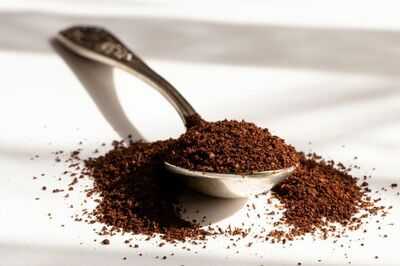
Don't throw away your coffee grounds. That's the latest advice from the UK's top gardeners as your leftover beans could be more valuable than you think.
Coffee is the world's favourite drink, with about two billion cups being brewed every day, according to the British Coffee Association. But rather than tossing them in your food waste bin, or down the drain where they can clog pipes, place them in your garden and watch your green space bloom.
Checked for horticultural accuracy by Oliver Parsons - an experienced gardener and magazine journalist of 20 years - the experts at BBC Gardeners' World Magazine have stressed that coffee grounds make a fantastic natural fertiliser, boosting your soil and helping plants thrive - and it's worth trying.
It explained: "Coffee grounds are an excellent compost ingredient and are fine to apply directly onto the soil around most garden plants if used with care and moderation. Coffee grounds contain nutrients that plants use for growth. The grounds are relatively high in nitrogen and also contain potassium and phosphorus, as well as being a source of organic matter."
What do I do?Step 1: Collect your used coffee grounds
After brewing your coffee, save the used grounds instead of throwing them away and let them cool before doing anything.
Step 2: Add grounds to your compost or worm bin
The BBC suggested that the safest and most effective method is to mix coffee grounds into your compost container or worm bin. This is because they break down easily and enrich your compost, creating nutrient-rich material that improves soil structure and plant health. You can add directly to the soil if you want though, just jump to step 4.
Step 3: Apply compost to your garden
Once the compost is ready, spread it around your plants or mix it into the soil to give your garden a natural boost.
Step 4: Use coffee grounds directly - with care
If you want to apply grounds straight to the soil, sprinkle them lightly around plants rather than dumping large amounts in one spot. Avoid forming thick layers, as they can clump together and block air and water from reaching roots.
Step 5: Rotate where you use them
When adding grounds directly to garden beds, change the location each time. Don't keep emptying your coffee pot in the same place.
The BBC have stressed that not all plants may benefit from your coffee grounds - so don't go dumping them outside just yet. It's explained: "Coffee tends to be slightly acidic and is therefore good for acid-loving plants such as hydrangeas, as well as nutrient-hungry plants like roses, but again, use it only in moderation on any one plant."
Coffee grounds are often recommended as a natural slug deterrent and can be sprinkled around slug-prone plants like hostas. However, results vary. In addition to this, because used grounds can still contain traces of caffeine, it's worth being cautious as caffeine can stunt the growth of some plants like tomatoes and may also interfere with seed germination.
Have a dog?The gardening experts stress that if you have a four-legged friend, be very careful. The warning reads: "Coffee grounds are toxic to dogs, so avoid using them in your garden if you have a dog."
You may also like

With their villagers' support, 2 women marry in Bengal's Sundarbans temple

The pretty seaside town dubbed a mini Maldives but just 4 hour flight from UK

BSNL: BSNL quietly reduced the validity of these 7 cheap plans, check the full list..

Abhishek Surpasses David & Suryakumar to Set THIS New World Record; Is He the Best in T20Is?

Candidate reveals the one question which eventually cost him the job: 'They ended the call'







